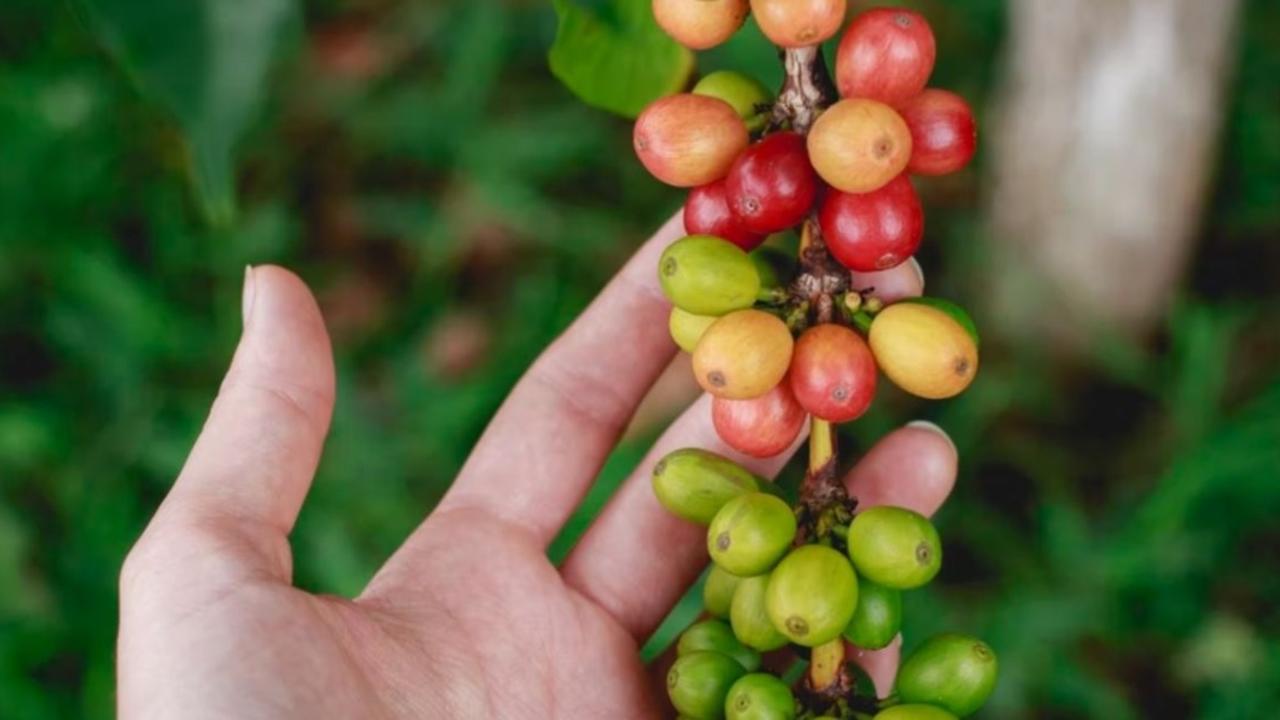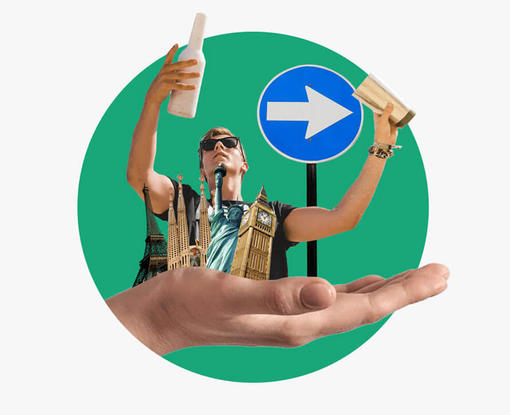Speciality coffee is a special kind of coffee, if you hadn't already worked that out.
This isn't your standard, run-of-the-mill grain you buy down the coffee and tea aisle. This is a product, that if it doesn't meet sky-high standards, cannot be called 'speciality'!
In recent years, speciality coffee has exploded and become a taste sensation with coffee lovers. But why do people love this version so much? And what makes speciality coffee... special?
What is speciality coffee?

Speciality coffee is a coffee that scores 80, or above, out of 100 on something called the 'speciality scale'. This scale is determined by the Speciality Coffee Association (SCA), who set the strict rules and regulations over classification.
The main idea behind speciality coffee is to deliver a coffee, in which every step of the journey is carefully considered. From the coffee bean farm to the barista, this coffee has to meet specific expectations to be given its speciality status. This is good news for any coffee lovers, as you'll be getting a high quality morning brew!
These coffee beans are usually grown at high altitudes in carefully managed climates and soil compositions, producing the unqiue flavours. Coffee sourcers put a lot effort into finding the perfect coffee farm for speciality coffee because of this. Once it leaves the farm, it's enhanced and perfected further during the remaining steps. The result? A great-tasting, sustainably-sourced bag of coffee, ready to blow you away.
How is speciality coffee classified?

So, as we've said, speciality coffee must achieve at least 80 on the speciality scale, marked by a certified coffee taster, approved by the Speciality Coffee Association. The coffee is given either a 'very good', 'excellent' or 'outstanding' rating with its official score.
There are many steps to the classification and everyone involved in the process must adhere to the strict rules, if the coffee is to be speciality. This means coffee farmers, green coffee buyers, coffee roasters and baristas must all be aligned during the process, otherwise it simply won't be a speciality coffee.
The classification process
The rating process for speciality coffee is very strict. In fact, there are elements considered that you wouldn't have even thought about! For example, during the assessment, the lighting levels in the room must be the same for each classification, as well as the size of the table. This standardisation ensures that each fledgling bean gets a fair trial!
For the coffee beans themselves, there are defect categories they must pass. To become a speciality coffee bean, there must be no Category 1 defects. A defect in this category can include issues like a black or sour bean, which can greatly affect the taste. The coffee bean must also have no more than 5 Category 2 defects. These defects include immature, damaged, cracked or even discoloured beans.
If the bean survives all of this, then it's officially a speciality coffee bean!
Where is speciality coffee grown?

The major coffee producing countries of the world like Brazil, Ethiopia, Vietnam and Colombia are the main contributors of speciality coffee (as to be expected).
However, there's been a real effort to expand into other 'upcoming' countries, whose climates will produce more unique tasting coffees. These days, it's not uncommon to see speciality coffees from Rwanda or Costa Rica. Even countries like Panama and Bolivia, whose coffee production is much smaller, are seeing coffee roasters visit their lands for its potential.
In essence, any country can produce a speciality coffee, as long as it meets the high expectations set by the Speciality Coffee Association.
How to make speciality coffee: 4 step process

The process of making a speciality coffee is made up of 4 steps, all before it's poured into your cup.
1. Coffee farmer
It all starts with the bean.
Coffee farmers will have had years of coffee farming experience under their belt before becoming a speciality coffee producer. This gives them enough time to perfect their coffee bean crop.
The farmers have a great understanding of their environment and plants. Hugely influential elements like the climate and soil composition are carefully monitored, to ensure the perfect coffee bean is grown. Without these intimate pieces of knowledge, the farmer cannot grow high quality coffee beans.
Usually, the coffee roasters develop relations with the coffee farms, so that they can understand the farmers' beans better and their agricultural techniques. Both businesses ultimately benefit from this special relationship.
2. Green coffee buyer
Next, is the green coffee buyer.
The buyer is essentially the coffee judge. They will rate the coffee and give their verdict on whether it's a speciality coffee and where it sits on the scale, if so.
The process is done through coffee cupping, in which the coffee is observed, smelled and tasted. The flavours, body, acidity and aftertaste are discovered during this process and communicated to the coffee farmers, roasters and baristas. This is important as the farmers can get feedback on their crop, the roasters can understand its profile before roasting and the baristas can adapt any recipes to the beans they receive.
3. Coffee roaster
Once the evaluation is complete, it's time to roast the bean.
The coffee roasters really treat roasting like an art. It's an incredibly delicate procedure, where small tweaks can cause big changes to the flavour. The roasters receive information from the green coffee buyers about the tasting notes and decide how they want to proceed with the roasting. Certain flavours can be enhanced through coffee roasting, so it definitely requires an experienced roaster!
4. Speciality barista
Finally, the speciality coffee beans are in the hands of the coffee makers themselves... the baristas.
These are highly knowledgeable baristas, who have an understanding of the coffee bean's origin, farmer's techniques and tasting notes. They really know everything!
This is important for speciality coffee, as the baristas will know which type of brew is best for exposing its flavours.
Not every speciality coffee goes through the same brewing process. Some speciality coffee beans are better for filter, whereas some are best as an espresso. Some beans like to use a gooseneck kettle, whereas others don't need such specialised equipment. If you can't tell this already, these coffee beans are a little needy at times.
Once the barista knows how to best brew the coffee beans, you'll receive a cup of delicious coffee, that'll get you running back for more!
History of speciality coffee

In terms of coffee history, speciality coffee is an incredibly young concept. The term can be traced back to 1973 when Norwegian coffee expert (and legend), Erna Knutsen, coined the phrase herself. Erna worked with small trade coffee suppliers, a practice uncommon at the time to promote single origin coffee. She was revolutionary within the coffee industry and changed the attitudes of those within it too. In fact, without Erna, we may not be writing this article, so all credit goes to her and her pioneering work!
In recent years, however, speciality coffee has had a few revivals. This craze really kicked off in the early 2000s and again within the last 8 years. There was a real drive to look at coffee in the way of 'quality over quantity'. Coffee aficionados wanted to move away from coffee just being a stimulant, used to get commuters through the morning rush. Instead, coffee was going to be made into a delicious product, bursting with flavour and sourced responsibly.
Upon the merger of the European and American Speciality Coffee Association, this gourmet coffee gained a boost in the conscious of coffee lovers. These days, you'll be hard-pressed not to find a coffee roaster in your city that sells a speciality coffee. If you love coffee, then get yourself a bag of the stuff and never look back!
Why choose speciality coffee?

This is a good question. There are many nice tasting coffees out there that aren't speciality. So, why even drink speciality coffee in the first place?
The answer: its quality.
Firstly, many speciality enthusiasts would argue that coffee doesn't get any better than the speciality variety. The taste is simply incomparable, as so much effort is gone into making it. So, if you love tasting a great coffee, choose a speciality coffee. Or if you're starting a cafe, consider this as a great USP for your business!
Secondly, you can guarantee that there's an ethical aspect to your morning brew, if it's speciality. As already said, every aspect is considered during classification, resulting in a top quality coffee. It's these high standards that command a good price, which goes towards improving working and living standards at the origin. So, by buying a bag of speciality coffee, you'll be helping to build communities from the other side of the world. Crazy, no?
Before we go, it's worth noting that a bag of speciality coffee isn't exactly unaffordable. It's just a little bit more expensive than a regular bag of coffee but with a whole load of quality beans packed inside!
It's called 'speciality' for a reason...
Feeling inspired? Come and learn all about speciality coffee our barista course and start your journey into the world of all things coffee today...

